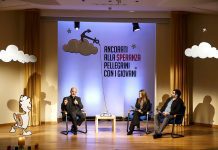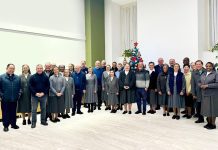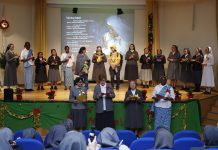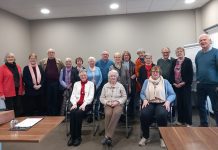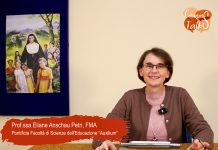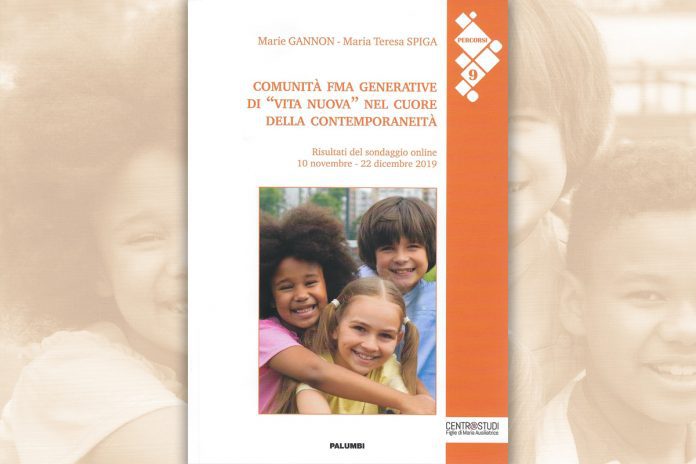Rome (Italy). Communities generative of “new life” in the heart of contemporaneity. Results of the online survey 10 November – 22 December 2019, is the title of the book written by Sister Marie Gannon and Sister Maria Teresa Spiga, FMA, published by Palumbi Publishers in the series Paths of the Studies Center on the FMA (Teramo 2024) which presents the research carried out by the Institute of the Daughters of Mary Help of Christians on the occasion of General Chapter XXIV of 2021.
The research stems from the desire to ask young people and lay people about how the FMA Communities generate “new life” at the level of the territory in which they are present, through a wide range of works, investing in educational projects in favor, above all, of the most disadvantaged young people.
The results of the Online Survey were drawn up and consigned to the Preparatory Commission for the work of General Chapter XXIV and for 2023-2024, are the subject of reflection and study by the Inter-Provincial Conferences animated by the Sisters of the General Council of the FMA Institute.
Despite the fact that a few years have passed since the research was carried out, the text is today addressed to the FMA Communities which, with a watchful eye, an attentive heart, and a spirit of initiative, want to deepen the data and finds its value in the fact that it offers the tools to focus on the educational mission of the FMA communities “in situation”. Appendix I contains translations of the questionnaire into the 12 languages used to reach young people and lay people who participated in the research, so that they can be useful for conducting research at the local level.
The publication of the book was motivated by a conviction: every goal reached is a starting point for new goals and, at the same time, an opportunity to grasp what crosses the life of the FMA communities, whatever their geographical location. As highlighted in the dedication, it is addressed “to all the Daughters of Mary Help of Christians and to all those who have the courage to let themselves be challenged by the new frontiers of the educational mission in the world of youth.”
In the Presentation, the Superior General of the FMA Institute, Mother Chiara Cazzuola, observes, “We realize, reading the answers, that generativity emerges as a charismatic determining element of our being FMA, even if never fully reached.” She therefore stresses the importance of “continuing to work with a view to the future and with the conviction that concrete steps must be taken to answer the urgent questions and thus become more understandable.”
The deepening of the theme of generativity is therefore an encouragement to assume a new pastoral perspective that, in accordance with what the Synod on Synodality in progress invites to do, privileges relationships rather than the organization or multiplication of things to do. Because it is only in the encounter between people, that is, in relationship, that “new life” can be generated (cf. Marcello Semeraro, p. 91).


